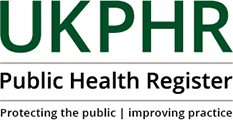Public health consultant and specialist survey 2013
The Centre for Workforce Intelligence (CfWI) has published its final report on its survey of public health consultants and specialists. CfWI was commissioned by Public Health England (PHE), Health Education England (HEE) and the Department of Health (DH) to carry out this work. The information gathered will be used in making future policy decisions relating to the future size and shape of the public health workforce in England.
UK Public Health Register (UKPHR) is represented on CfWI’s reference group for this work.
Public health consultants and specialists were asked to take part in an online survey between 8 November and 6 December 2013.
A total of 574 consultants and specialists responses were used in the overall survey analysis. Given there were approximately 1,100 public health consultants and specialists in September 2012 according to the Health and Social Care Information Centre (HSCIC). The CfWI has assumed that the response rate was just over half (52 per cent). Just over 53 per cent of respondents worked in local authorities and 46 per cent were UKPHR registrants.
A wide range of views and perspectives were revealed by the survey, with variation within and across professional, employer and geographic groups. The survey indicated that many staff found a career in public health satisfying and rewarding, but that significant minorities had concerns or uncertainty about the future of the profession as a whole and their own careers in particular.
Key findings:
Job Satisfaction – This was generally good, however, there were pockets of less satisfied staff worried about recent organisational changes, new ways of working and uncertainty about the future of the public health system. Job satisfaction was also reported as below average in local authorities, where over half of the respondents were based.
Career intentions – Just over half of respondents expected to remain in their current posts for the next one to two years, and just over 20 per cent over the next three to five years.
Changing roles and responsibilities – Over 70 per cent of respondents anticipated changes in their roles and responsibilities over the next one to two years, with changes to organisational boundaries, policy and procedures most commonly cited as expected changes.
Career support – Over half of respondents rated the support provided by their employer as 6 out of 10, while a sizeable minority rated their support as 3 out of 10. Respondents wanted greater access to professional networks and mentors, and more training on strategic leadership.
Education and training – The most popular suggestions to encourage new applicants to the profession were clearly defined career pathways, a clear vision for public health, and favourable terms and conditions.
Career recommendation – About half said they would recommend a career in public health, compared to only 22 per cent who would not. Those working in health improvement (54 per cent) and health protection (53 per cent) were amongst the most positive about the profession. Concerns about fragmentation of the service and progression were raised as medically trained, males and those in mid-career of public health were the least likely to recommend a career in public health.
Full results for the survey can be found here
http://www.cfwi.org.uk/publications/the-cfwi-public-health-consultant-and-specialist-staff-survey-2013/



Comments are closed.